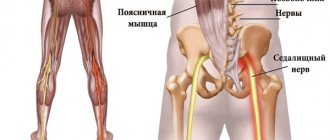Emotions allow us to fill human life with meaning. But there is a state when the emotional background is reduced, there is indifference and indifference to the events of the surrounding world. Apathy is a low level of feelings or they are completely absent. An apathetic state can be described with the following words: “I don’t care” and “I don’t want anything.” What is apathy? What are its reasons?
Causes of depressed mood
The reasons for the appearance of malaise may be different. Loss of spirit does not only occur during periods of depression. The causes of an apathetic state can be:
- fatigue;
- constant insomnia, which leads to lack of sleep;
- difficulties at work;
- period of menstruation.
Apathy, unlike depression, disappears within a few days if a person gives his body time for rest, entertainment and communication.
What leads to a depressed mood in most cases:
- Malfunction of the endocrine system.
- Strong feelings.
- Stress.
- Drug or alcohol addiction.
- Uncontrolled use of medications.
- Hereditary predisposition.
- Loss of a close friend, relative.
- Divorce from your husband or breakup with your boyfriend.
- Brain injury.
- Schizophrenia.
Link to depression
Apathy is one of the clinical symptoms of depression. There is an obvious connection between depression and apathy. But the presence of indifference and indifference in a person is not enough to diagnose depression. Depressive disorder has a broad clinical picture. It includes impaired thinking, low mood, sleep problems and other signs.
With depression, a full range of negative emotions is felt against the background of a persistent depressed state. The disorder affects speech, thinking, and motor activity. And the feeling of apathy is characterized by indifference and a feeling of chronic fatigue.
Where does the apathetic state come from?
While you succumb to despondency, stubbornly refusing to “pull yourself together,” doubts, fears and complexes appear in your mind. They literally eat you up from the inside, causing self-doubt and a feeling of powerlessness. Remember, every person is individual, and only you can decide what to do with your life. By delaying making the right decision, refusing to try different options and, quite possibly, making a mistake, you are left alone with your problem and the unpleasant feeling of unrealized potential.
Depression and apathy are not only physical weakness. These issues are multi-layered and have mental, emotional and spiritual implications. For this reason, it is impossible to truly eliminate apathy by watching a comedy or going to a concert of your favorite artist. An unpleasant state will cling to all possible hooks, trying to remain in your consciousness as long as possible. And your task is to find the maximum number of such “hooks” and free yourself from them.
Treatment of apathy
What to do if symptoms of apathy have been diagnosed? The main emphasis in the treatment program on how to deal with excessive indifference is on identifying the causes of the abnormal condition, their analysis and elimination.
It is worth considering that in some situations, a short-term cooling of feelings is a natural healer that acts to normalize mental activity. Therefore, if apathy arose after a long stay in a psychotraumatic environment, you should not take your unusual insensitivity by storm. It is necessary to create conditions for complete “nervous relief” for several days. Take a weekend: get away from noisy society, rid yourself of everyday problems, don’t overload your brain with useless information. You just need to have a good rest: take a long walk through the forest, sit with a fishing rod on the shore of a lake, spend the night in a tent.
The basic rule in the treatment of apathy is gradualism and consistency. You should not expect that, having taken some kind of miracle pill, coldness and passivity will instantly be replaced by passion and energy. Treatment of global insensitivity requires time and the help of competent specialists. As practice shows, the help of a psychologist or psychotherapist is necessary for most people who are in apathy. This step is indispensable due to the fact that only a few of those who are faced with the phenomenon of detachment are able to establish the reasons for their insensitivity and know safe ways to overcome apathy. An experienced doctor, during confidential conversations, will help to understand the origins of the problem and explain what specific changes a person needs to make.
How to get rid of chronic apathy? Treatment of total indifference is based on three pillars:
- quality night's sleep in the required quantity;
- reasonable balance of time for work and rest;
- eliminating stressful situations.
It is impossible to achieve success in treating apathy if a person continues to experience stress factors and does not receive satisfaction of natural physiological needs: has a lack of sleep or has poor nutrition. Therefore, an important step in treatment: review your daily schedule, create conditions for sound sleep, allocate time for daytime rest, and devote weekends exclusively to leisure.
You should structure your diet in such a way that foods containing carbohydrates, proteins, vitamins, and minerals are present on the table every day. Following a fasting diet during apathy is an extremely wrong step, since meager food will completely deprive the body of elements for energy production.
A set of measures in the treatment of apathy involves the following aspects:
- daily exposure to fresh air;
- physical activity within reasonable limits;
- contrast water procedures;
- massage course;
- drug therapy.
Basis of drug treatment:
- B vitamins, for example: Neurorubine;
- nootropics, for example: Lucetam;
- agents that improve tissue metabolic processes, for example: Stimol;
- psychostimulants, for example: caffeine (Caffeine);
- natural adaptogens, for example: Ginkgo Biloba.
In severe situations, antipsychotics may be included in the treatment regimen, for example: Phrenolon.
State of apathy
To understand how to deal with apathy, it is necessary to understand the mechanism of its development. The state of apathy is determined by an excess or, conversely, a lack of emotions. When a person experiences too many emotions, over time he seems to become exhausted. Apathy sets in as a period when the body needs rest and time to reboot.
If a person does not have enough positive emotions, then he begins to get bored. He feels a loss of strength. Over time, this develops into complete indifference to everything.
A state of apathy can occur at any time in absolutely any person. It is observed even in those who are considered successful, happy and prosperous. A temporary apathetic state does not threaten a person with anything dangerous. It is quite normal to be lethargic, weak and sleepy for a short time. However, prolonged observation of these sensations leads over time to a painful state.
You should get rid of the state of apathy. But the problem is that an apathetic person is indifferent not only to the world, but also to himself. Most likely, he will need the help of specialists.
Treatment options
A doctor can determine how to cure apathy. In most cases, drug therapy is relegated to the background. When the question arises of how to overcome apathy, modern methods of psychotherapy come to the rescue.
However, in severe cases, drug treatment is an auxiliary method. Main group of drugs:
- Antidepressants help improve the patient’s mood, tone up and slightly increase blood pressure. They have a number of contraindications and lead to addiction.
- Nootropic drugs. Improves cerebral circulation. Regulate the tone of the vascular wall. By improving brain nutrition, the body's resistance to stress increases.
- Anxiolytics. Used least often. Used when apathy is accompanied by anxiety disorders.
Most people wonder how to get out of depression, because it is not always so simple. In the initial stages of the disease, it is much easier to fight the disease. Individual consultations with a psychotherapist are very helpful. At the same time, provoking factors are studied in detail: trauma, problems, conflicts. Group classes also give very positive results.
The fight against apathy in adolescence includes fairy tale therapy, modeling, and sand therapy. The main thing that needs to be done is to get the person out of his condition. Sometimes difficulties arise when the question arises of how to deal with apathy. It is not always easy to convey to a person the appropriateness of therapy. Some patients refuse basic treatment methods, considering themselves absolutely healthy.
Everyone needs to know how to deal with apathy that progresses. In addition to modern methods of psychotherapy, you can also use home methods.
Causes of apathy
Apathy and its other possible causes: chronic diseases (heart attack, paralysis, diabetes, cancer), premenstrual syndrome in women, failure to realize creative abilities, alcoholism, drug addiction, old age.
A lethargic state can be caused by birth control pills, heart medications and blood pressure medications, as well as sleeping pills, antibiotics, and steroids.
Apathy in young people is often caused by low energy, serious illness, vitamin deficiency, lack of sunlight, emotional and physical stress.
In modern life, an apathetic state can be caused by many reasons - both collectively and individually. The most common among them:
- Endocrine dysfunction,
- Long-term depression, stress, psychological trauma, after which the body turned on a defense mechanism so as not to suffer, for example, after the loss of a loved one.
- Drug treatment, in particular drugs with side effects;
- Chronic diseases
- PMS in women
- Inability to realize creative abilities,
- Lack of energy, for example due to weight loss or anemia;
- Alcoholism, drug addiction,
- Old age,
- Family or financial problems causing feelings of infirmity.
A lethargic state can be triggered by birth control pills, heart and blood pressure medications, as well as sleeping pills, antibiotics and steroids.
The cause of apathy may be professional activity that provokes emotional burnout. Some unpleasant event has happened in life, for example, a disability.
Also, changes often occur in the psyche associated with some serious mental illness, for example, depression, bipolar disorder (where periods of depression occur alternating with periods of mania, that is, high mood) or schizophrenia.
Fatigue
Working too hard and not getting enough rest can cause chemical changes in your brain that promote apathy.
Sleep disorders
During sleep, the brain rests and produces neurotransmitters that maintain well-being at the desired level. With a lack of normal sleep, apathy may appear.
Stress
Chemicals that are released during prolonged stress can cause fatigue, irritability and apathy.
Main reasons
Subconscious - what is it, definition
Apathy in adults can arise as a result of life crises, or be a manifestation of serious mental illness. The main causes of the condition are as follows:
- Psychological experiences. After a traumatic event, a person may fall into an emotional stupor. This is normal if this condition does not last very long. A person may seem apathetic, although in fact he is spinning a problematic situation, which makes him not want to do anything else and communicate with people. He is lost in his thoughts.
- Pregnancy. This is a difficult time for the body, when it is subjected to severe physical and emotional stress. There is a complete restructuring of the endocrine system and psychology of a woman. Therefore, apathy may occur. Often the reasons in this case are a change in the usual way of life, loss of the ability to make a career, and so on.
- Mental retardation, ranging from congenital oligophrenia with underdevelopment of the emotional sphere and ending with senile dementia (senile dementia).
- Schizophrenia. Usually, a relapse of the disease or its first manifestations begins with apathy.
- Apato-abulsic syndrome may also occur during depression.
- Emotional burnout.
- Somatic diseases. Even a common cold can trigger apathy. What can we say about severe poisoning, cancer, and diseases of the cardiovascular system?
- Overwork.
- Lack of sleep. A person who has not had enough sleep reacts much worse to everything, even to the point of loss of emotions.
- Prolonged or too much stress. In terms of the degree of psychotraumatic impact, both options are equally dangerous for the human psyche.
- Organic brain lesions.
Efficient use of time
Proper distribution of time is the key to a successful fight against laziness and apathy
Quite often, when we start doing important work, we begin to get distracted by various little things. It throws off the rhythm, disrupts the mood and eventually laziness takes its toll (12)
Productivity throughout the day should be as efficient as possible. You should not feel overwhelmed and inactive. To do this, you need to properly allocate your time to the assigned tasks. It is best to draw up an action plan in a certain sequence. It is advisable to calculate the approximate time required.
The main thing is not to be distracted and not to deviate from the intended path (13).
Equally important is the rationalization of the daily routine. Don’t forget about such important points as: healthy sleep and good nutrition (14).
Apathy is a consequence of violent emotions
What are the reasons that a person does not want to wash his face, comb his hair, or communicate with friends? Why does he feel lethargic, exhausted and tired, and is he tormented by constant fatigue? There may be many reasons, but it is important to understand the main thing. Emotions are the driving force behind meaningful activity.
They are the ones who encourage you to wake up, greet a new day with joy, and put your soul into your work. We enjoy morning coffee, chatting with colleagues, a delicious lunch and evening meetings with friends. But the peculiarity of the human body is such that sometimes it needs a break; it cannot always express emotions. Therefore, a state of apathy comes, which gives time to rest and gain strength.
The driving force behind meaningful activity is emotion. They are the ones who encourage you to wake up, greet a new day with joy, and put your soul into your work. We enjoy morning coffee, chatting with colleagues, a delicious lunch and evening meetings with friends. But the peculiarity of the human body is such that sometimes it needs a break; it cannot always express emotions. Therefore, a state of apathy comes, which gives time to rest and gain strength.
What to do with apathy
What to do with apathy and how to identify the causes of its occurrence? If the signs of apathy described above are observed personally in you or your loved ones, you should analyze the reasons for their appearance:
- Hereditary factor. Perhaps your parents or grandparents had similar conditions or other mental health problems.
- Stressful situation. Experience can quite and often be the cause of apathy and a nervous breakdown.
- Failure of the endocrine system (hormonal causes).
- Use of drugs that depress the nervous system.
- Depression at any stage.
- The presence of chronic or incurable diseases.
- Alcoholism, drug addiction, substance abuse, gambling addiction.
- Lack of success in life, impossibility of self-realization.
- Loneliness.
- Elderly age.
Some psychologists call apathy a paralysis of emotions, as a person stops being happy, angry, or upset. He becomes indifferent and nothing can cause either smiles or tears.
He may sit or lie motionless in one position, look at one point or close his eyes, forget basic things and have trouble thinking.
However, there are people who carefully hide their condition in society. They behave actively, can communicate with colleagues and friends, without outwardly showing any deviations. But one day they commit suicide.
Why? Emotions are hidden deep in the depths of emotional experiences; a person, through volitional efforts, stays “in public.” Left alone, he suffers, and emotions and waves of negativity take over him completely.
A person does not see the future, has no dreams, does not feel the need to stay in the present moment. No emotions, no worries, no plans, no desire to continue or start doing something.
Experts note that those who suffer from apathy are often perfectionists who like to achieve the ideal in everything. This is due to the fact that those who are used to doing everything perfectly lose control over their own desires and emotions and act solely on the result.
He spares no effort and time to complete the job perfectly and meet the deadline. At the same time, it constantly seems to him that everything has not been done enough and not well enough.
A perfectionist cannot stop, express gratitude to himself, or reward himself with a well-deserved vacation or a gift. Even if everything is fine, he doesn’t think so.
Of course, the long-term pursuit of an ideal does not bring anything good and undermines physical and mental health. Someday burnout sets in, fatigue takes its toll and a person loses meaning in this whole race. The result, among other things, can be apathy.
What is apathy?
What is apathy and how does it manifest itself? This psychological term means a state of detachment that does not bring satisfaction. An apathetic person lives with a lack of motivation. The disease may worsen over time. With such a pathology, a person ceases to perceive the world painfully and seems to lose all its colors. The patient looks lethargic.
An apathetic state can develop gradually and become a response to psychological trauma. Disappointment or a serious shock that leaves an imprint in the subconscious can contribute to the development of the disease.
The apathetic state from a medical point of view has a complex characteristic. The disease manifests itself as a syndrome that allows a person to see the world through a dense lens, sensitivity and perception are lost.
The state of apathy should be differentiated from depression. Although both of these diseases are often combined, they still have fundamental differences. With depression, a person feels depressed and sad. Apathy syndrome is not manifested by any feelings, but rather by indifference. A person may refuse to eat, his appetite and general condition worsen.
Apathy, what it is, how to cope with it, interests all patients. And this is no coincidence. Self-therapy is necessary along with the help of a professional. The term apathy in psychology means manifestations of reduced perception of the surrounding world. At the same time, there is often laziness and lack of desire for any activity.
The meaning of the word apathy is associated by many with a complete loss of meaning in life. Pathology can occur against the background of chronic fatigue syndrome. There is a burnout of feelings, emotions and aspirations.
Apathy is a state that does not bring satisfaction to a person. Many note the only plus - the absence of negative emotions. An apathetic mood that recurs periodically is a rather alarming sign that should be on your guard. The disease cannot be ignored, otherwise it may become chronic.
Apathy test
As a diagnostic measure, it is recommended to take an apathy test. There are many similar online checks on the Internet.
You can assume a disorder if you find 4-5 signs from the list below:
- sloppy clothes;
- lack of desire to take care of oneself;
- recent stress experienced;
- constant dark thoughts;
- lack of contact with family and friends;
- decreased ability to work;
- tense feeling;
- drowsiness during the day and insomnia at night;
- lack of positive emotions;
- diffidence.
Specialists use various psychological tests to assess the patient’s condition and determine the extent of the disorder.
Afterword
Think about when you noticed the first “bells” of apathy. Perhaps someone has offended you or disappointed you. In response to what did you turn off your feelings? Don't force yourself to be strong. Let me experience the grief and forgive the insult. Your “car” has run out of gas. You won't be able to push it for long. Find "gas station".
If you are just tired, burned out, then go into a calm for a couple of days. Take sick leave and spend it the way you want. Don't want anything? Then don't do anything. The psyche will recover, the apathy will pass. If this does not happen, then the reason is more serious. Visit a psychologist.
Symptoms of apathy
A distinctive feature is a person’s lack of desire to engage in any type of activity, communicate with close relatives or friends, even hobbies cease to bring joy. The following symptoms of apathy can also be identified:
The desire to reduce communication with other people, not to be the center of attention Decreased performance, as interest in activities disappears Routine causes backbreaking work Accumulation of fatigue, which becomes chronic over time Loss of appetite Difficulty concentrating on performing a specific task Prevalence of depressed mood.
In the process of developing apathy, a person tries to isolate himself from the world around him and reduce the number of social contacts with other people. Emotional reactions are practically absent, since they are hidden in the unconscious.
If apathy is accompanied by abulia, then decreased physical activity is often noted, and speech ceases to be intelligible and clear. The thought process is disrupted, intellectual activity is inhibited.
How to deal with apathy
There are several ways to cope with apathy and prevent the development of complications.
Need to talk it out
Tell your loved one how you feel
An important condition: this must be a person you trust. If this is not possible, talk to yourself
From the outside, the advice seems ridiculous. But it will really help you get out of a state of indifference. Sit in front of the mirror. Be honest with your reflection about how and why you feel. Don't try to hide details. Be completely honest. Show any emotions. Scream, swear, cry. If necessary, speak not once, but several times. This way you can get to the bottom of it and understand the cause of apathy.
Move
You may have to force yourself to do it. But don't stop halfway. Fight laziness, indifference, and apathy by any available means. Play sports, cook new dishes, ride a bike. The main thing is not to allow yourself to become even more immersed in sad thoughts.
Walk more often
Go to a park, town square, or beach. Remember the sights of your city, places that you used to enjoy visiting. Communicate with nature.
Perhaps you have a special place where you like to spend time. Go there. In silence and solitude, you can reflect on the current situation, find out the cause of apathy, and find ways to eliminate it.
Use your imagination
Walking mindlessly on the street can worsen the condition. So use your imagination, play the game
Pay attention to people passing by. Can you determine their character, problems, experiences by their facial expressions?
Such exercises will distract you from your own problems and help develop logical thinking, concentration and observation.
Protect yourself from negativity
Limit or completely eliminate from your life everything that brings negative emotions with it. Stop watching the news, crime reports and other similar television programs. Replace them with comedies and entertainment shows.
The same goes for communication. Surround yourself with positive people who can see the good in any situation. Otherwise, apathy will only progress.
Find a similar story
During the existence of cinema, hundreds of films have been made. Surely there is one in which the hero struggles with a problem similar to yours. You will undoubtedly be inspired by his victories and achievements.
Raise your self-esteem
An effective method of combating apathy and depression. The main thing is to start. Let these be small steps, such as visiting the hairdresser or buying new clothes.
It is important that after all this you will feel more confident, more attractive, stronger. And then the desire to act will come
Travel
According to psychologists, this is an ideal way to combat apathy. Change your surroundings by visiting another country if possible. New impressions will distract you from problems and set you on a positive wave.
Find a hobby
Usually a lack of initiative, lethargic person has a lot of free time. Fill it with interesting activities. Think about what you would like to do? Maybe you had a dream to paint a picture? Or learn a foreign language? Or maybe you wanted to learn how to dance salsa? The right time has come.
A hobby will help you take your mind off negative thoughts and cope with apathy.
Causes of laziness in women
Constant apathy and fatigue in a woman is unlikely to occur just like that. The body is a complex system in which any failure will entail changes in the emotional sphere.
Causes of apathy, weakness, drowsiness, fatigue in women:
- stress and anxiety;
- stress at work and at home without proper rest;
- neurosis;
- depression;
- alcoholism;
- taking certain medications (neuroleptics, antidepressants, hormones);
- diseases of the nervous system (stroke, tumors, injuries);
- hormonal imbalance;
- pregnancy;
- PMS;
- past infectious processes;
- anemia;
- oncopathology;
- diseases of the heart and blood vessels.
The listed reasons lead to the appearance of symptoms of apathy, which, if no action is taken and if the current level of stress does not change, progresses.
Apathy manifests itself due to emotional, mental and physical exhaustion
Symptoms and signs
Apathy - how to deal with it if you don’t want to do anything
The main symptoms of apathy include:
- Indifference to events occurring in life;
- Bad mood;
- Drowsiness;
- Loss of appetite;
- Impaired concentration.
Mental activity decreases. Therefore, both the person himself and the people around him can determine the presence of apathy. A number of mental illnesses involve a more severe form of the symptom, called apato-abulic syndrome. It combines two components: apathy and abulia; not only the emotional, but also the volitional sphere is disrupted. A person may lose interest in those things that previously gave him pleasure. With apatho-abulic syndrome, a person loses sympathy for the troubles of loved ones, as well as the ability to rejoice at their successes.
With a feeling of complete apathy, the disease reaches the point that patients stop going to the toilet and refuse to perform hygiene procedures. The slightest action requires enormous willpower. At the same time, ancient instincts may manifest themselves: sexual desire or hunger may intensify.
In schizophrenia, apato-abulic syndrome develops gradually. First, the patient loses the ability to experience strong emotions. For example, he may not react in any way to the death of his son, but watch TV and laugh at the comedy. After some time, the ability to experience emotions is completely lost.
This condition is called emotional dullness. The apathetic component appears first, then it is joined by lethargy and weakness of will. Apathy does not last forever - as soon as the relapse ends, the person’s emotional sphere is somewhat restored.
To bring a person out of apathy, you need to select a specific key for him
With apathy, the ability not only to express, but also to experience emotions is lost. Minimal facial expressions may occur: the voice is monotonous and there is no gesticulation. In weaker forms, the patient expresses emotions, but much weaker compared to healthy people.
For your information. Apathy can be a manifestation of mild mental disorders or occur after taking psychotropic drugs.
Important! With depression, apathy also occurs, but it is fundamentally different from schizophrenic. In the first case, emotional manifestations are present, but they slow down because the overall activity of the nervous system decreases. In schizophrenia, this symptom can be combined with delusional ideas, thinking disorders, memory impairment, and catatonic disorders.
Why does apathy appear?
In the modern world, apathy develops in people very often, and it can be observed in successful and even happy people who have taken place in life. Sometimes from the outside it seems that the reasons for apathy are completely incomprehensible. Even the patient himself very rarely can understand what lies behind his illness and what provoked it. In addition, it should be taken into account that the patient, imbued with indifference to everything that happens around him, is still indifferent to his own illness, which leads to its worsening.
However, apathy in a person can develop both due to internal and external reasons. So, sometimes those events that at first glance seem completely insignificant can leave a serious mark on the soul, which leads to changes in the psyche.
Psychologists identify several reasons that very often lead to the development of apathy. This condition sometimes develops in people whose profession is associated with strong emotional stress. A decrease in energy can also be associated with a serious illness, lack of sunlight, or vitamin deficiency. Any manifestations of prolonged stress, both physical and moral, can also ultimately cause apathy in a person. Also, as the reasons due to which this condition develops, experts identify both negative stress and a very bright positive event, after which a person experiences emotional emptiness.
Apathy is quite common among women during pregnancy. If the expectant mother does not show interest in novelty, is constantly bored and even has very little interest in changes in her own condition, then these may be signs of apathy. The cause of this condition is serious hormonal changes during pregnancy. Doctors advise not to allow the condition to worsen: just walk a lot, do exercises in the fresh air, and the state of apathy will become a thing of the past.
But apathy and a lethargic state are not always an exclusively psychological phenomenon. Sometimes these signs indicate the development of serious illnesses. Apathy can be a sign of serious depression, schizophrenia, organic brain damage in the head and other diseases. Apathy is also sometimes a sign of endocrine dysfunction, a number of chronic illnesses, alcoholism, drug addiction, and premenstrual syndrome.
A visit to a psychotherapist or other specialists is necessary if the causes of inhibition are difficult to determine, and the apathy lasts more than one month. The mental component should also be of concern - the presence of disruptions in thinking, memory lapses, and a very weak reaction to external stimuli. Speech inhibition and inhibition of thinking should also be considered alarming symptoms. In addition, the state of inhibition is manifested by motor retardation. Sometimes with apathy, it is the retardation of movements that is one of the most alarming symptoms. If such signs are present, immediate diagnosis and proper treatment of the disease is required.
Causes of the disease
The causes of apathy can be different. The peak of exacerbations often occurs in the autumn and spring periods. At the same time, weakness is felt. The disease can be provoked by many factors, the main of which are:
- long-term psychological trauma;
- death of loved ones;
- problems that cannot be solved;
- a lot of work and little rest;
- family problems;
- the birth of a child (especially at an early age);
- chronic fatigue syndrome;
- serious illnesses;
- taking certain medications that affect mood;
- puberty;
- pregnancy.
Indifference to everything often occurs after the breakup of a long-term relationship. This condition is typical for both women and men. Apathy, the causes of which are varied, is characteristic of workaholics and people engaged in activities that require increased responsibility.
Apathy towards everything and the weakness that accompanies it is often a chronic process, repeated at certain intervals and manifested in the presence of provoking factors. When you don’t want to do anything, there is fatigue that cannot be overcome, it is recommended to pay attention to this predisposing condition.
Psychology identifies this disease as a separate group, since it has a complex etiology. When apathy occurs, the first signs are loss of strength and weakness. This condition occurs when a person is exposed to stress over a long period of time. The psyche simply cannot cope with such overloads.
Apathy can be not just a temporary condition, but also a constantly present syndrome. At the same time, some people cope with the initial signs of pathology on their own, while others have to seek help from specialists.
The resulting weakness during apathy is characterized not only by sluggish thinking, but also by inhibited psychological processes. Quite often, the precursor to the disease is vigorous activity or a fight against something that ended unsuccessfully.
The result of apathy syndrome is not only weakness, but also a lack of emotions. A person can go from a depressed state to depressed and indifferent.
How to get rid of apathy
The choice of method for eliminating apathy is determined by the form and degree of the disorder, as well as the intensity of the manifestations.
With a mild form of apathy, drug treatment is not required; the condition usually goes away on its own after the person’s psyche is restored. Usually two weeks are enough for a person to fully rest and recover.
Mild forms include conditions in which apathy occurs in a person as a result of a long-term illness, vitamin deficiency, severe fatigue, physical, emotional, and psychological stress.
In such cases, you should not insist on treatment and take the person to the hospital.
It is enough to provide him with conditions in which he can fully relax and recover: give him sleep, organize proper nutrition and entertainment, surround him with attention and care.
How to overcome mild apathy:
Organize nature walks;
Walking in nature will help overcome mild forms of apathy
- To captivate with any interest or hobby;
- Involve in sports activities;
- Create comfort and coziness: a delicious dessert, tea, chocolate can lift your spirits and get you out of an apathetic state;
- Send on a trip or journey;
- Do not leave a person alone: organize communication with relatives and friends;
- Offer relaxing procedures: sauna, massage, bathhouse, etc.
All these procedures should be offered and carried out gradually, trying not to overload the person.
Severe and complex stages of apathy are treated with the help of a specialist: psychotherapy sessions, medications, and the development of recommendations for lifestyle changes.
How to get rid of apathy in a complex form:
- Consultation with a psychologist. A specialist, using certain techniques (hypnosis, cognitive therapy, psychoanalysis), determines the problem that led to a state of apathy. After this, the doctor will offer the patient various methods to eliminate this problem, using medicinal and non-medicinal treatment methods.
- Non-drug therapy:
- Massage, relaxation procedures;
- Preparation of a correct, balanced diet, enriched with vitamins, minerals, proteins;
- Ensuring quality sleep in the right quantity;
- Physical activity (in small quantities);
- Proper organization of the daily routine: the ratio of rest and work;
- Elimination of stressful situations;
- Daily walking and outdoor activities.
- Drug therapy:
- Nootropics (Lucetam);
- B vitamins;
- Sedatives (mint, lemon balm);
- Drugs that improve tissue metabolism (Stimol);
- Natural adaptogens (Ginkgo Biloba);
- Antidepressants (Phenelzine, Trazodone);
- Neuroleptics (Tiaprid, Frenolone).
If you have apathy, you can help yourself, but only if the condition is not caused by a related pathology (that is, if apathy is not a consequence of a mental illness). Also, you should not treat apathy yourself if it is the result of severe chronic diseases.
The basic principles of how to deal with depression and apathy are consistency and gradualism of actions and the desire of the person himself to return to a normal state. You shouldn’t expect that by taking some “magic” pill, indifference will resolve on its own. Treatment of a long-term state of apathy requires the help of competent specialists and time.
Apathy is not a dangerous condition unless a person remains in it for a long time. In some cases, such a state is simply necessary to protect the psyche and relaxation of a person. But being in an apathetic state for a long time means that a person cannot get out of it on his own, and therefore treatment is indispensable.
Recognizing Apathy Disorder
How to determine that a person is in a state of apathetic disorder? Strong-willed individuals will hide this weakness until the last moment, ignoring any manifestations of apathy.
It is not difficult to identify an apathetic state in yourself or notice it in a loved one. Be alert if you notice the following signs:
- feeling of complete loneliness;
- reluctance to communicate with friends and relatives;
- the appearance of severe absent-mindedness, memory impairment;
- lack of feelings, inhibition of emotional reactions;
- loss of appetite, unwillingness to take care of oneself and appearance;
- indifference to everything: work, people around, hobbies;
- pessimistic perception of the world, lack of bright prospects;
- a feeling of endless weakness, exhaustion; it is impossible to get out of bed in the morning and fall asleep in the evening;
- The following phrases very often begin to appear in speech: “I don’t know”, “What difference does it make”, “I don’t want and can’t decide”, “Think for yourself”.
What it is?
There is no diagnosis of apathy as such in clinical medicine. But if we take the international classification of diseases, then the state of apathy is a symptom of deviation from the accepted norm of behavior, emotional and cognitive sphere.
A person develops apathy towards everything, he has a desire to lie down, not go anywhere and do nothing. A long-term state of apathy leads to a lack of desire to do even necessary things - from personal hygiene to going to the store. An apathetic person is constantly lethargic, tired, and has no strength.
Causes and symptoms
The development of the disease can be triggered by external factors or internal problems in the body. External causes of apathy include the following:
- Heavy workload - difficult, routine activities that cause strong psychological stress can lead to emotional burnout. The disease also affects people who have to work very intensively for long periods of time.
- Stress and conflict situations - strong, long-term worries about problems at work, quarrels with loved ones, or the loss of a loved one can cause a state of apathy.
- Lack of opportunity for self-realization and satisfaction of one’s needs - after many persistent attempts to earn money or find an interesting job, a person gives up, which leads to a loss of interest in life.
Internal causes of apathy are often associated with various diseases, such as schizophrenia, diabetes mellitus, premenstrual syndrome, thyroid dysfunction. This also includes severe addictions: drug addiction and alcoholism. This disease can develop during pregnancy and immediately after childbirth.
Symptoms of the disease are usually quite mild, which makes early diagnosis difficult. Often the patient himself and those around him do not even realize that the disease is progressing. Symptoms can be very different, but several main signs of apathy can be identified:
- rapid fatigue and drowsiness - even when performing simple actions a person feels weak and powerless;
- avoidance of communication - the patient constantly strives for loneliness, is reluctant to answer questions, speech becomes slow and monotonous, devoid of intonation and emotional coloring;
- indifference to any type of activity and ongoing events - a person is immersed in himself, absolutely not reacting to what is happening around him;
- pessimistic attitude - the patient sees life and the future in “black color”, he is haunted by a feeling of hopelessness.
In severe cases, the state of apathy leads to the fact that a person refuses food and other necessary needs of the body, becomes absent-minded, gloomy and gloomy.
How it manifests itself: symptoms
Symptoms of apathy have a number of characteristic features. These include:
- Reluctance to communicate, avoidance of contact with people.
- Low mood for a long time. If nothing makes you happy, the emotional background is filled with indifference to surrounding events and emptiness, then this is a sign of apathy.
- Absent-mindedness. It appears as a result of indifference. A person cannot remember usual actions, gets confused on the way, and forgets about important assignments.
- Problems concentrating. Constant fatigue affects all processes of nervous activity, including attention.
- Apathy and laziness. A person does not want to perform even basic hygiene procedures, eat food, or get out of bed. Laziness is associated with weakness and general indifference.
- Dizziness. The symptom appears as a result of mental exhaustion or prolonged physical inactivity.
An apathetic person stands out in a group or against the background of active people. He has a fixed gaze, he is not interested in the problems of others, he is dispassionate and indifferent.
The main signs of apathy are expressed in loss of interest in favorite activities and insensitivity. A person feels chronic fatigue even after sleep, he limits contacts, and tries not to leave the house. He often loses his appetite and his speech becomes slurred.
How to deal with apathy?
To effectively cope with the problem of how to deal with apathy, a person himself should want to get rid of it. You can resort to violent methods of treatment in the form of pills and edifying conversations. However, they will be useless until the person himself wants to get out of his apathetic state.
You should realize the danger of your condition. Being in apathy, it may seem that this is even better. There is nothing to be done, there is no need to stress, there is nothing to worry about, etc. A pleasant apathetic state, when you can be lazy, weak and yourself, can lead to depression. The mistake is that apathy does not bring happiness to a person who does not have to strain himself in any way.
Experts recommend allowing yourself to do nothing for the first time, rest, and switch gears. After this, you should remove laziness, lethargy and look at life differently in order to help yourself get out of apathy.
Acknowledge the problem that caused the apathy. Get rid of expectations and irritants. Remember how in childhood you did not grieve for a long time, but quickly switched to the pleasant moments of life. Allow yourself not to grieve over what is happening, but to switch to other things and interesting activities.
Often apathy is a consequence of missing goals. The man failed and fell into an apathetic state. Allow yourself to gain strength and start not by achieving a goal, but by realizing at least a small desire. It is better to take small steps gradually towards your goal rather than immediately strive to conquer high peaks. This will allow you not to lose heart and not remain in apathy for a long time.
Disease prevention
Mental rigidity - what is it, definition
If apathy is provoked by mental illness, then it is very difficult to prevent it. Genetics is to blame, being the main risk factor for schizophrenia, bipolar disorder and other disorders. In cases where the cause is neurosis, the classic rules of psychological hygiene apply:
- Get rid of inadequate expectations and inflated ambitions. Development must be carried out in small steps. It is necessary to get rid of perfectionism and do everything possible to improve your life.
- It is important to focus on what depends on the individual and stop trying to achieve results that you cannot influence on your own. For example, there is no need to remake another person.
- Decide on your goals and don’t be afraid to dream.
- Learn to see opportunities where others see problems.
If apathy is provoked by schizophrenia, then measures are needed to prevent relapse of the disease.











